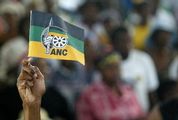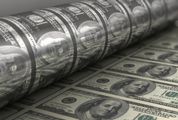Doorway to the Brinks’ world of unspoken feelings
by Ashraf Jamal,
2016-03-18 05:00:00.0
NAMED after the famous "Sestiger" literary firebrand and artist, the Breytenbach Gallery nestles in the small town of Wellington, an hour-and-a-half from Cape Town.
Although Capetonians are rarely willing to cut urban ties under the misapprehension that the beauty of the city’s surrounds are sufficient, nothing beats freeing oneself of its tentacular urban sprawl. And so it was particularly pleasurable on a Saturday to find myself sliding into the back seat of a German sedan with friends.
The Breytenbach Gallery is a double-storey colonial affair that, given that its namesake is a writer and visual artist, also operates as a multimedia community arts centre. On the white flank of the building, we see the full length of a Breytenbach poem in Afrikaans. But it is what’s inside that is the subject of this story — an exhibition of paintings, Unspoken, by Anton Brink, the son of the novelist Andre P Brink.
Brink died last year while en route back from The Netherlands, where he had received yet another honorary doctorate. Celebrated abroad, in his home country Brink was never quite as valued. Perhaps it was that, unlike Nadine Gordimer or JM Coetzee, he lacked a certain high seriousness. After all, throughout the 1970s and 1980s when SA’s "resistance culture" was at its peak, its literature was all too aptly dour, moral, ideologically passionate, yet coolly detached. This self-inflected critical distance persists to this day despite the fact that as a mood and style, it is hopelessly out of step with a global yen for what the British Marxist art critic Julian Stallabrass dubbed "High Art Lite".
Andre Brink, mistakenly regarded as a lightweight because of his populist style, zest for the baser instincts, and the fact that he was prolific, never lost sight of the greater and deeper human condition. It is perhaps thoroughly appropriate that he is most greatly loved in France, a country that instinctively recognises the inextricability of the base and higher instincts, the eroticised mind and body.
But it is the son, Anton, who now forcibly enters the picture to provide us with yet another vision of this literary giant.
His hauntingly surreal series of paintings are attempts on the part of the son to understand a pointedly estranged relationship; "an attempt to reach out to a man who was more a writer than a father, more present in his works than for his children".
This grim truth is all too evident in the recently published love letters of Andre Brink and Ingrid Jonker whose torrid affair glaringly reveals Brink’s ability to coolly separate his role of father and husband from that of writer and lover, for it is evident in the reading of Flame in the Snow that Jonker was not only his sexual addiction, but his literary muse.
In the letters, Anton is barely mentioned, while Jonker’s daughter is pervasively present.
This observation reinforces the son’s yearning, through this painterly memorial, to bridge a chasm and give voice, albeit belatedly, to all that has been left "unspoken". Indeed, Anton Brink sees the show as "a collaborative experience as we merge as creators and as father and son", and "in that merging, the uncomfortable, unspoken and unacknowledged tension between us seeps out as an accusation, a promise and a search for forgiveness".
This private search for truth and reconciliation is most powerfully expressed in Pappa — Blue Door, the centrepiece of the exhibition. It is an actual door, with four glass panels — the door to the house that the artist’s father assisted in buying for his son — which is now transformed into a reliquary.
Each glass panel houses a cluster of telling objects that trigger memories of the father — an Afrikaans copy of Flame in the Snow, a box of Viagra discovered in Andre Brink’s jacket pocket on his return from one of his many international literary jaunts, a photograph of Anton as a baby seated on the floor before his father’s vast library, and a copy of Playboy Magazine with the same date of the son’s birth.
There is something achingly intimate about this work. If it dominates the show, it is because it is less an artwork than a treasure trove rescued from a fire; a son’s sacrament and burden. In speaking with the artist, it is acutely clear that the separation from his father remains a wound. He remembers a shut door always between the two of them, the clatter and din of a typewriter in that other world beyond. "In my role as a father to my own son and daughter, I am determined not to leave so much unspoken," he says.
• Unspoken, by Anton Brink, is on show until April 7, Breytenbach Centre, 14 Burger Street, Wellington. Dial 021 873 2786.
NAMED after the famous "Sestiger" literary firebrand and artist, the Breytenbach Gallery nestles in the small town of Wellington, an hour-and-a-half from Cape Town.
Although Capetonians are rarely willing to cut urban ties under the misapprehension that the beauty of the city’s surrounds are sufficient, nothing beats freeing oneself of its tentacular urban sprawl. And so it was particularly pleasurable on a Saturday to find myself sliding into the back seat of a German sedan with friends.
The Breytenbach Gallery is a double-storey colonial affair that, given that its namesake is a writer and visual artist, also operates as a multimedia community arts centre. On the white flank of the building, we see the full length of a Breytenbach poem in Afrikaans. But it is what’s inside that is the subject of this story — an exhibition of paintings, Unspoken, by Anton Brink, the son of the novelist Andre P Brink.
Brink died last year while en route back from The Netherlands, where he had received yet another honorary doctorate. Celebrated abroad, in his home country Brink was never quite as valued. Perhaps it was that, unlike Nadine Gordimer or JM Coetzee, he lacked a certain high seriousness. After all, throughout the 1970s and 1980s when SA’s "resistance culture" was at its peak, its literature was all too aptly dour, moral, ideologically passionate, yet coolly detached. This self-inflected critical distance persists to this day despite the fact that as a mood and style, it is hopelessly out of step with a global yen for what the British Marxist art critic Julian Stallabrass dubbed "High Art Lite".
Andre Brink, mistakenly regarded as a lightweight because of his populist style, zest for the baser instincts, and the fact that he was prolific, never lost sight of the greater and deeper human condition. It is perhaps thoroughly appropriate that he is most greatly loved in France, a country that instinctively recognises the inextricability of the base and higher instincts, the eroticised mind and body.
But it is the son, Anton, who now forcibly enters the picture to provide us with yet another vision of this literary giant.
His hauntingly surreal series of paintings are attempts on the part of the son to understand a pointedly estranged relationship; "an attempt to reach out to a man who was more a writer than a father, more present in his works than for his children".
This grim truth is all too evident in the recently published love letters of Andre Brink and Ingrid Jonker whose torrid affair glaringly reveals Brink’s ability to coolly separate his role of father and husband from that of writer and lover, for it is evident in the reading of Flame in the Snow that Jonker was not only his sexual addiction, but his literary muse.
In the letters, Anton is barely mentioned, while Jonker’s daughter is pervasively present.
This observation reinforces the son’s yearning, through this painterly memorial, to bridge a chasm and give voice, albeit belatedly, to all that has been left "unspoken". Indeed, Anton Brink sees the show as "a collaborative experience as we merge as creators and as father and son", and "in that merging, the uncomfortable, unspoken and unacknowledged tension between us seeps out as an accusation, a promise and a search for forgiveness".
This private search for truth and reconciliation is most powerfully expressed in Pappa — Blue Door, the centrepiece of the exhibition. It is an actual door, with four glass panels — the door to the house that the artist’s father assisted in buying for his son — which is now transformed into a reliquary.
Each glass panel houses a cluster of telling objects that trigger memories of the father — an Afrikaans copy of Flame in the Snow, a box of Viagra discovered in Andre Brink’s jacket pocket on his return from one of his many international literary jaunts, a photograph of Anton as a baby seated on the floor before his father’s vast library, and a copy of Playboy Magazine with the same date of the son’s birth.
There is something achingly intimate about this work. If it dominates the show, it is because it is less an artwork than a treasure trove rescued from a fire; a son’s sacrament and burden. In speaking with the artist, it is acutely clear that the separation from his father remains a wound. He remembers a shut door always between the two of them, the clatter and din of a typewriter in that other world beyond. "In my role as a father to my own son and daughter, I am determined not to leave so much unspoken," he says.
• Unspoken, by Anton Brink, is on show until April 7, Breytenbach Centre, 14 Burger Street, Wellington. Dial 021 873 2786.























Change: 1.19%
Change: 1.36%
Change: 2.19%
Change: 1.49%
Change: -0.77%
Data supplied by Profile Data
Change: -0.19%
Change: 0.69%
Change: 1.19%
Change: 0.00%
Change: 0.44%
Data supplied by Profile Data
Change: 0.62%
Change: 0.61%
Change: 0.23%
Change: 0.52%
Change: 0.12%
Data supplied by Profile Data
Change: -0.21%
Change: -1.22%
Change: -0.69%
Change: -0.51%
Change: 0.07%
Data supplied by Profile Data